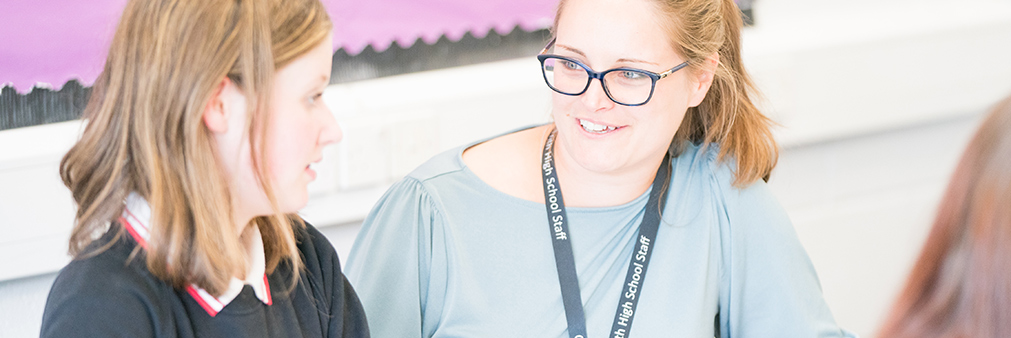
Modern Foreign Languages
Curriculum Vision
‘The decision to learn a foreign language is to me an act of friendship…to get to know you better, to draw closer to you and your culture, your social manners and your way of thinking’
- John le Carré –
Our Modern Foreign Languages curriculum aims to open our students’ eyes to the wider world beyond the hills of the High Peak, through learning to communicate confidently, effectively, and empathetically in an increasingly globalised world. Students are encouraged to understand the value of knowing a foreign language, looking beyond their own community and learning that communicating within a range of international settings has the power to make a positive difference in the world.
Knowledge and skills
Through our aspirational and innovative programme of study in Year 7, students learn key grammatical concepts in French, German, Spanish and English, drawing on their primary school literacy as a starting point for their journey as foreign language learners. Students quickly develop an awareness of language families, understanding how geographical and historical influences have shaped the way that French, German, Spanish and English function as independent but related languages. From year 7 onwards, students learn fundamental and foundational grammar that underpins the languages studied in order to successfully manipulate them, thus empowering them to be competent and independent language learners. Furthermore, students build confidence in listening to and speaking the language through a carefully scaffolded programme of phonics, starting in year 7. Furthermore, through learning about different customs and traditions in France, Germany and Spain, students boost their cultural capital and acquire a curiosity about life in different countries.
From year 8 onwards, students will choose one of the three foreign languages. By allowing the students a free choice in their language, we aim to create engaged, focussed and aspirational language learners. Our approach is inclusive, allowing success at all academic levels.
During years 10 and 11, students acquire a mastery of the language that allows them to talk not only about themselves but about wider world issues, such as climate change and social issues. Using the grammar studied in years 7 - 9 as a starting point, students build a more comprehensive toolbox of verb tenses and grammatical structures, enabling them to understand and manipulate a wide range of complex language. Students develop confidence in dealing with the unknown, problem solving and independent learning.
Context
Within a predominantly English-speaking rural area, we aim to equip our students with knowledge and skills that they will use for the rest of their lives, whether that be an enhanced understanding and appreciation of their own language, or to spark a passion for further language study and international travel. We love running a fun and thought-provoking programme of trips, which enhance not only our students’ language skills, but also their cultural capital. We believe that everyone is a linguist, and through our innovative, inclusive and inspiring curriculum, we aspire to open our students’ eyes to the wonderful world of opportunities that speaking more than one language can provide.
You can find our year 7 to 9 French curriculum here.
You can find our year 7 to 9 German curriculum here.
You can find our year 7 to 9 Spanish curriculum here.
You can find our year 10 and 11 curriculum here.
Years 10 and 11 GCSE French, German and Spanish
We run GCSE options in French, German and Spanish. We encourage all our pupils to seriously consider studying a language to GCSE level. Although studying a modern language at GCSE level can be challenging, it is also rewarding, and a highly valued qualification. Our department has a strong track record of GCSE success.
Examination Information
| French | Spanish | German | |
|---|---|---|---|
| Qualification | GCSE 1-9 | GCSE 1-9 | GCSE 1-9 |
| Board | AQA | AQA | AQA |
| Syllabus number | 8658 | 8698 | 8668 |
| Website link | http://www.aqa.org.uk/ subjects/languages/ gcse/french-8658 |
https://www.aqa.org.uk/ subjects/languages/ gcse/spanish-8698 |
http://www.aqa.org.uk/ subjects/languages/ gcse/german-8668 |
| Assessment details | Terminal exams: Listening 25% Speaking 25% Reading 25% Writing 25% Pupils take either the Higher paper (Grades 9-5) or Foundation paper (Grades 5-1) for all four skills. |
Terminal exams: Listening 25% Speaking 25% Reading 25% Writing 25% Pupils take either the Higher paper (Grades 9-5) or Foundation paper (Grades 5-1) for all four skills. |
Terminal exams: Listening 25% Speaking 25% Reading 25% Writing 25% Pupils take either the Higher paper (Grades 9-5) or Foundation paper (Grades 5-1) for all four skills. |
| Recommended coursebook | AQA GCSE French 3rd Edition Higher AQA GCSE French 3rd Edition Foundation |
AQA GCSE Spanish 3rd Edition Higher AQA GCSE Spanish 3rd Edition Foundation |
AQA GCSE German 3rd Edition Higher AQA GCSE German 3rd Edition Foundation |
| Recommended revision guides | CGP GCSE French revision guide and vocab book. Both available vis ParentPay. |
CGP GCSE Spanish revision guide and vocab book. Both available vis ParentPay. |
CGP GCSE German revision guide and vocab book. Both available vis ParentPay. |
| Recommended websites | www.linguascope.com (See your MFL teacher for user name and password) | www.linguascope.com (See your MFL teacher for user name and password) | www.linguascope.com (See your MFL teacher for user name and password) |

